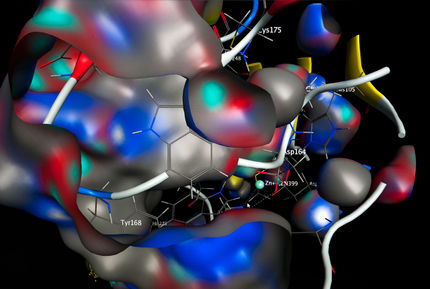Altered bacteria may reduce inflammation and alleviate inflammatory bowel diseases
An imbalance of bacteria in the gut can cause inflammation, a driver of conditions such as colitis, Crohn’s disease and colon cancer. Now University of Florida Health scientists, in collaboration with researchers from North Carolina State University, have discovered a protein that can minimize that reaction, unlocking a way to restore balance to gut bacteria and potentially reverse these conditions.
Researchers are beginning preparations for a phase 1 clinical trial to test whether giving the protein in pill form to patients could reduce inflammation in their digestive tracts.
The group works with a genetically altered form of the probiotic bacterium Lactobacillus acidophilus. In prior studies, the scientists deleted a gene responsible for a surface component on the cell that potentially increases intestinal inflammation. They demonstrated that Lactobacillus acidophilus lacking that gene can lessen gut inflammation, easing colitis in mouse models. Now the group has discovered the specific protein responsible for significantly reducing the inflammation, according to findings published in The EMBO Journal.
“We believe if you can bring inflammation under control, you can basically control the disease progression of the colon,” said Mansour Mohamadzadah, Ph.D., a professor in the UF College of Medicine’s department of medicine and the UF College of Veterinary Medicine’s department of infectious diseases and pathology. “If you can tune down the local inflammatory responses of the colon, you can control the systemic effects in the peripheral organs.”
While some inflammation helps to combat bad bacteria consumed in food, the tissue-damaging effects of too much inflammation can be resolved by transferring gut bacteria from a healthy person into sick individuals to restore the system’s balance, said Yaíma Lightfoot, Ph.D., a postdoctoral fellow in the UF College of Veterinary Medicine’s department of infectious disease and pathology. But the UF researchers, in collaboration with Todd Klaenhammer, Ph.D., a professor in the departments of food science, microbiology and genetics at North Carolina State University, seek a simpler solution.
“It has been shown that people who are suffering from inflammatory bowel disease have an abnormal composition of bacteria in the gut. The composition is pro-inflammatory,” Lightfoot said. “Instead of trying to switch a bad composition of gut bacteria with a good composition, our goal is to add a single microorganism that can help restore balance in the gut.”
Lightfoot, the paper’s lead author, said giving bacteria to a person who needs it could cause unwanted inflammation depending on the recipient’s reaction to that particular bacteria.
“Instead, we’re adding a single protein we know does not cause inflammation, and which we know causes protective immunity,” she said.
Lactobacillus acidophilus has three surface layer proteins in addition to the inflammation-increasing molecule. These cell surface molecules interact with immune cells to trigger specific responses. The researchers genetically altered the bacterium so that it only created the outer surface layer, called surface layer protein A.
Working in mouse models, the researchers found that the surface layer protein A binds to a receptor on immune system cells that controls inflammation, Lightfoot said. When they removed this receptor from mice, the bacterium no longer reduced inflammation in the gut.
Next, the researchers plan to determine how long the protein’s protective effects last, which will help them prepare for the clinical trial.
“The bad guy is the pathogenic inflammation that can lead to colitis or colon cancer,” Mohamadzadeh said. “Our goal is to dampen that bad guy.”






















































